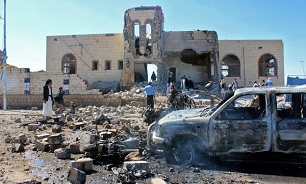Germany Stops Weapons Sales to Countries Fighting in Yemen
 Berlin said on Friday that it would "immediately" stop approving arms exports to anyone participating in the conflict - including major weapons buyer Saudi Arabia, The New Arab reported.
Berlin said on Friday that it would "immediately" stop approving arms exports to anyone participating in the conflict - including major weapons buyer Saudi Arabia, The New Arab reported.
Chancellor Angela Merkel's Spokesman wrote on Twitter that Germany "isn't taking any arms export decisions right now that aren't in line with the results of the preliminary talks," referring to coalition talks between Merkel's centre-right Christian Democrats (CDU) and the centre-left Social Democrats (SPD).
German Government Spokesman Steffen Seibert also said on Friday that the Federal Security Council was no longer issuing export licenses that “are not in accordance with the conclusion of the exploratory talks,” Germany’s official DPA news agency reported.
Rights group Amnesty International praised the foreign policy move in a tweet.
In November, Liebich forced the Economic Ministry to disclose figures that showed arms sales to Saudi Arabia and Egypt had increased fivefold in 2017 compared to the previous year, with $526 million worth sold.
Earlier this month, Norway announced it would stop selling weapons to the United Arab Emirates after it expressed concern the weapons purchased from the Scandinavian monarchy may be used to kill civilians.
A UN panel has compiled a detailed report of civilian casualties caused by the Saudi military and its allies during their war against Yemen, saying the Riyadh-led coalition has used precision-guided munitions in its raids on civilian targets.
Saudi Arabia has been striking Yemen since March 2015 to restore power to fugitive president Mansour Hadi, a close ally of Riyadh. The Saudi-led aggression has so far killed at least 15,500 Yemenis, including hundreds of women and children.
Despite Riyadh's claims that it is bombing the positions of the Ansarullah fighters, Saudi bombers are flattening residential areas and civilian infrastructures.
According to several reports, the Saudi-led air campaign against Yemen has driven the impoverished country towards humanitarian disaster, as Saudi Arabia's deadly campaign prevented the patients from travelling abroad for treatment and blocked the entry of medicine into the war-torn country.
The war, which enlists the participation among others of the United Arab Emirates, Jordan, Egypt, Bahrain, Kuwait, Morocco, Sudan, and Senegal, has been reinforced by weapon supplies and logistical support from the United States and the United Kingdom.
